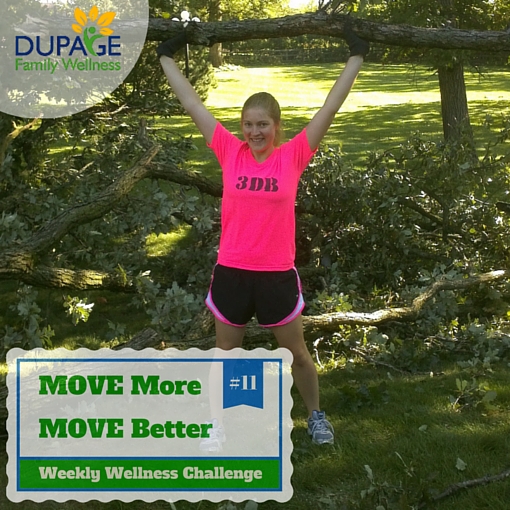 Move More - Move Better
Move More - Move Better
I saw an Instagram post earlier this week (follow me @docjthomure ) that resonated with me. The poster was Dallas Hartwig, one of the creators of the Whole 30 program where you eat real unprocessed foods for 30 days. Dallas discussed his movement while growing up. It included working in the family garden, traveling to the mountains to hike, mountain biking, canoeing, and swimming. His life was full of healthy movement, in spite of the fact that it did not include any planned or structured "exercise".
Dallas pointed out that “health is not dependent on doing tons of hard, structured exercise, and in a lot of cases hard training actually DECREASES health.” This idea has been trending in other research as well.
Many lean, fit, and muscular people have health problems that include gut issues, insomnia, fatigue, anxiety, chronic inflammation, thyroid problems, or depression. These people chase “fitness” with an intense structured exercise regimen, but it often leads to decreased health. I would rather be "healthy", meaning free of disease or injury, than have 6 pack abs that look good in the mirror, but are accompanied by underlying health conditions.
The Copenhagen City Heart Study explores the relationship between jogging and all cause mortality. They found that light and moderate joggers had lower mortality than sedentary people, but strenuous joggers had the same mortality rate as sedentary non-joggers.
Movement is an important component of overall health. People that move more throughout the day in functional ways will be healthier than those that go to the gym and beat themselves up with a repetitive workout for 45 minutes (especially if their one bout of movement is sandwiched between a desk job and an evening in front of the TV). These days, a desk job can be unavoidable. If this is your reality, walk, do squats, take the stairs, get a standing desk, and leave your desk as much as possible throughout your work day.
What are healthy functional movements?
Move more like your ancestors used to move! Just like we've discussed eating like our ancestors, we should also move like them. Functional movements will you help you to improve strength, improve mobility, and improve stability. For example:
- Walk
- Pick up something heavy and carry it
- Plant a garden and tend to it (squat)
- Climb a tree
- Build something
- Chase something
- Swim
- Paddle a boat
- Ride a bicycle
- Dance
- Play with your kids- or just act like a kid!
While this advice may seem unconventional, it is your challenge this week. Add healthy functional movement to your life each day. If you spend as much time moving as our ancestors used to (and by default less time at a desk/on a computer/watching TV, etc.) - it will lead to better health!

